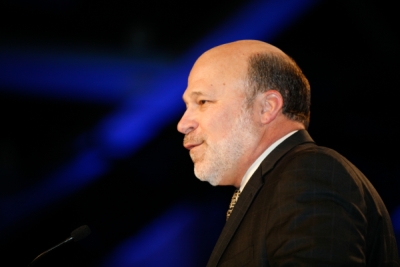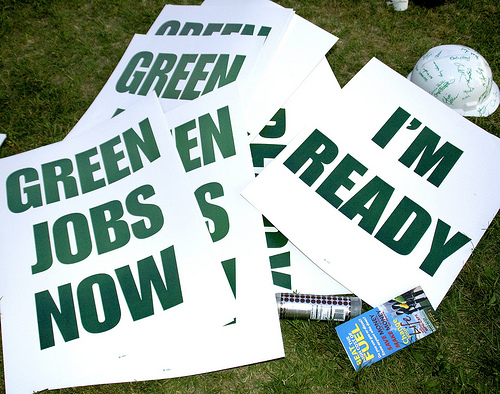Climate Technology
All Stories
-
India, Italy, Brazil can fill America’s blanks
Americans pride themselves on being ________ (fill in the blank with something like “biggest,” “best,” or “first”). Especially in California, we think we lead the world on carbon-reducing advances like ________ (fill in blank with “solar power,” “energy efficiency,” or “suntanned, body-builder, movie star, Austrian-born governors”). Given Obama’s U.N.-busting initiative in Copenhagen last month, our […]
-
Climate success in 2009 should inspire the new year
Co-written by Doug Kendall, founder and president of the Constitutional Accountability Center. For good reason, many climate activists view 2009 as a disappointing year, filled with bad news coverage and missed opportunities. The Senate seems a long way from passing a clean energy jobs bill, and the long-anticipated U.N. summit in Copenhagen has come and […]
-
Ford Fusion Hybrid wins 2010 Car of the Year, no green spin needed
The Ford Fusion Hybrid. Photo courtesy Ford Motor Company via FlickrNo green spin necessary, the Ford Fusion Hybrid sedan was soundly voted the 2010 Car of the Year. While not the first-ever hybrid vehicle to win this award (even for Ford), it is notable that the 2010 North American Car of the Year (NACOTY) was […]
-
Industrial farming head just says ‘no’ to call for civility
For those of you wondering if we can have a more civil discourse over food and agriculture in this country, American Farm Bureau President Bob Stallman has an answer for you: Fat chance! According to Stallman [MS Word], the top challenge facing farmers isn’t the rising cost of seed, fertilizer, and pesticides. Or the alarming […]
-
Pesticides loom large in animal die-offs
Yale’s Environment 360 has a new must-read report by Sonia Shah linking pesticides to the high-profile die-offs among amphibians, bees, and bats. What makes this news timely isn’t necessarily the toxicity of the pesticides per se, it’s the indirect effects on these animals of chronic, low-dose exposure to chemicals: In the past dozen years, no […]
-
The melting of America
This was originally published on TomDispatch and is republished here with Tom’s kind permission. Lately, I’ve been studying the climate-change induced melting of glaciers in the Greater Himalaya. Understanding the cascading effects of the slow-motion downsizing of one of the planet’s most magnificent landforms has, to put it politely, left me dispirited. Spending time considering […]
-
Everyone Poops – – and a few spin gold
Thanks to the global effort to cut carbon, we could soon be spinning waste of all kinds -- including poop -- into big bucks.
-
Transportation bill could produce environmental and job benefits in 2010
As advocates for clean energy and good jobs evaluate opportunities to advance their issues in 2010 — from a jobs bill that could include energy efficiency measures to a federal clean energy and climate bill — there is another oft-overlooked vehicle that advocates would be wise to consider. This year, Congress will likely pass a […]
-
How do I find a green job?
This is the time-honored question, one I get asked so frequently, from very qualified individuals, that I decided to answer it online. It is heartbreaking (and encouraging) how many skilled and interested people are looking for work in the sustainability field. The good news is the sector is growing exponentially. If you ask anyone in […]
-
U.S. car fleet shrank by four million in 2009
America’s century-old love affair with the automobile may be coming to an end. The U.S. fleet has apparently peaked and started to decline. In 2009, the 14 million cars scrapped exceeded the 10 million new cars sold, shrinking the U.S. fleet by 4 million, or nearly 2 percent in one year. While this is widely […]






